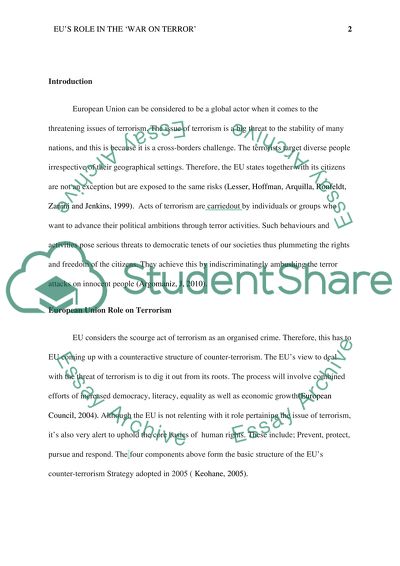Cite this document
(EU's Role in the War on Terror Term Paper Example | Topics and Well Written Essays - 2000 words, n.d.)
EU's Role in the War on Terror Term Paper Example | Topics and Well Written Essays - 2000 words. https://studentshare.org/politics/1846423-critically-assess-the-eus-role-in-the-war-on-terror
EU's Role in the War on Terror Term Paper Example | Topics and Well Written Essays - 2000 words. https://studentshare.org/politics/1846423-critically-assess-the-eus-role-in-the-war-on-terror
(EU'S Role in the War on Terror Term Paper Example | Topics and Well Written Essays - 2000 Words)
EU'S Role in the War on Terror Term Paper Example | Topics and Well Written Essays - 2000 Words. https://studentshare.org/politics/1846423-critically-assess-the-eus-role-in-the-war-on-terror.
EU'S Role in the War on Terror Term Paper Example | Topics and Well Written Essays - 2000 Words. https://studentshare.org/politics/1846423-critically-assess-the-eus-role-in-the-war-on-terror.
“EU'S Role in the War on Terror Term Paper Example | Topics and Well Written Essays - 2000 Words”. https://studentshare.org/politics/1846423-critically-assess-the-eus-role-in-the-war-on-terror.


